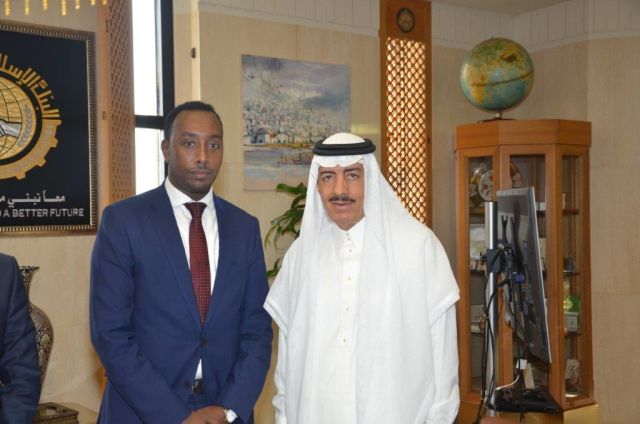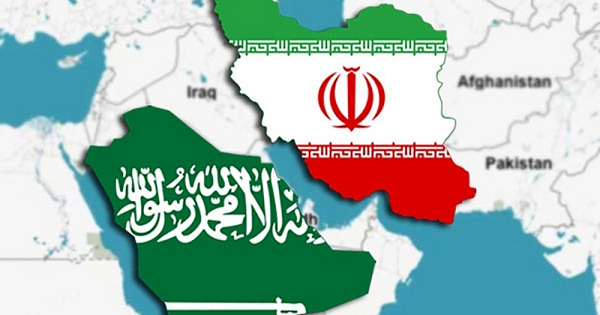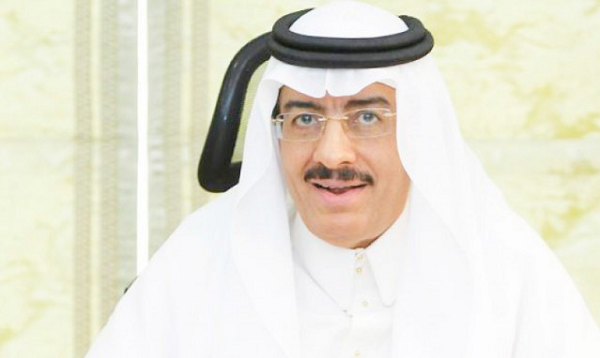
by admin | May 25, 2021 | Corporate, Corporate Buzz, Muslim World
 Jeddah : The Islamic Development Bank’s “AAA” credit rating was recently reaffirmed with a “Stable Outlook” by Moody’s. Concurrently, the trust certificates issued by IDB Trust Services Ltd have also been affirmed at ‘AAA’.
Jeddah : The Islamic Development Bank’s “AAA” credit rating was recently reaffirmed with a “Stable Outlook” by Moody’s. Concurrently, the trust certificates issued by IDB Trust Services Ltd have also been affirmed at ‘AAA’.
The ratings and the stable outlook reflect the intrinsic strength of IDB; in particular its strong capital base, solid liquidity levels, strong shareholder support, prudent financial and risk management and generally low solvency risks compared with other regional multilateral development banks (MDBs). This is the 11th consecutive year that IDB is assigned “AAA” ratings by Moody’s.
The IDB remains amongst the most highly-rated MDBs and the highest in the Muslim World. The ‘AAA’ rating enhances the Bank’s capacity to mobilize external resources to fulfill its development mandate and play a leading role in development of the Islamic Finance Industry.
IDB is a multilateral development bank established in 1973 with the purpose of fostering economic development and social progress of its member countries and Muslim communities in non-member countries in accordance with the principles of Islamic Finance.
Dr. Bandar Hajjar, President of the IDB Group, congratulated all member countries, IDB Board members and staff for this important achievement. He renewed IDB’s commitment to exert maximum efforts to realize the objectives of the 2020 Vision.
—AG/IINA

by admin | May 25, 2021 | Muslim World
 Jeddah : The Islamic Development Bank (IDB) will strongly support the government of Somalia in strengthening livestock market through capacity building for the benefit of the country’s economy.
Jeddah : The Islamic Development Bank (IDB) will strongly support the government of Somalia in strengthening livestock market through capacity building for the benefit of the country’s economy.
IDB President Dr. Bandar Hajjar disclosed this during talks with Somalia’s minister of livestock, Sheikh Nur Mohamed Hassan.
Dr. Hajjar stated that IDB welcomes capacity building at institutional and country level. “We will be happy to support Somalia with capacity building in terms of planning, strategy and creating enabling laws that will enhance the competitiveness of the livestock of Somalia. We have a large program on capacity building, and we would be happy to work together. Somalia is a special case, we would like to look at its development challenges and try to address them comprehensively.” Dr. Hajjar said.
In his remarks, Sheikh Nur Mohamed Hassan expressed his appreciation of IDB. He told Dr. Bandar Hajjar that Somalia and IDB have a lot of cooperation in various spheres of development including the Adahi project. He then asked for the support of IDB in strengthening the livestock market, which is one of the leading sectors of the Somalia economy.
—AG/IINA

by admin | May 25, 2021 | Muslim World
 Jeddah, (IINA) – Saudi Arabia on Tuesday accepted the Iranian government’s request to sign the annual Hajj agreement, a decision that will allow Iranian citizens to perform the pilgrimage this year. An Iranian delegation is due to sign the pact today, Arab News reported.
Jeddah, (IINA) – Saudi Arabia on Tuesday accepted the Iranian government’s request to sign the annual Hajj agreement, a decision that will allow Iranian citizens to perform the pilgrimage this year. An Iranian delegation is due to sign the pact today, Arab News reported.
Hameed Mohammadi, assistant chairman of the Iranian Hajj organization, said: “The Saudi authorities sent the invitation to the organization with regard to arrangements for Hajj this year”.
According to an official Iranian online statement, an Iranian Hajj delegation led by its director Said Awhadi is on its way to Saudi Arabia to complete what it described as “the second round of talks about the Hajj season”.
The talks follow the refusal of the Iranian delegation last week to sign a Hajj agreement with the Kingdom that is mandatory for all countries sending pilgrims this year. The Kingdom accused the Iranian government of playing politics and said it was responsible for blocking its own pilgrims in the eyes of Allah and its people.
The Saudi Council of Ministers last week accused Iran of attempting to politicize Hajj by refusing to sign the agreement with the Saudi Hajj and Umrah Ministry. It stated that there were no attempts made to block Iranian pilgrims.
The Iranians had sought to have visas issued in Iran for their pilgrims. The Kingdom was not prepared to do that because it had closed its missions in that country after they were attacked. The Kingdom had stated that the visas would be issued from Dubai.
Among the points of contention, the Iranians demanded to be able to hold their own rituals and protests. Saudi Arabia contented that these protests were not in the spirit of Hajj.
Saudi Arabia is at odds with Iran over a raft of regional issues, notably the conflicts in Syria and Yemen in which the two countries support different sides.

by admin | May 25, 2021 | Halal Industries
 Jeddah (IINA) – Saudi Arabia has proposed Bandar Hajjar, former minister of Haj, as the new president of the Islamic Development Bank (IDB) Group. Hajjar will replace Dr. Ahmed Muhammad Ali, who has been serving as the president of IDB for most of the period ever since its inception in 1975, the Saudi Press Agency reported.
Jeddah (IINA) – Saudi Arabia has proposed Bandar Hajjar, former minister of Haj, as the new president of the Islamic Development Bank (IDB) Group. Hajjar will replace Dr. Ahmed Muhammad Ali, who has been serving as the president of IDB for most of the period ever since its inception in 1975, the Saudi Press Agency reported.
Ali thanked Custodian of the Two Holy Mosques King Salman for the Kingdom’s unflinching support to IDB throughout his presidency. He wished Hajjar every success in his new endeavor as his successor. On his part, Finance Ibrahim Al-Assaf, who is also governor of IDB, lauded the outstanding performance and great efforts made by Ali in making IDB one of the largest financial bodies across the world.
The 41st annual session of the Board of Governors of IDB, which is to begin in Jakarta on Saturday, will ratify the Kingdom’s nomination of Hajjar as the new president of IDB.
Hajjar has a degree in economics and political science from King Saud University in Riyadh, a master’s degree in economics from Indiana University in the US, and a PhD in economics from Loughborough University in England. He was undersecretary in the economics department at King Abdulaziz University between 1995 and 1998, deputy president for research in Islamic economics at the same university from 1992 to 1995, and headed the external affairs committee in the Shoura Council.
He was later appointed deputy chairman of the National Human Rights Society between 2004 and 2005, and then as president in 2005. A royal decree was issued in December 2011 to appoint him minister of Haj.

 Jeddah : The Islamic Development Bank’s “AAA” credit rating was recently reaffirmed with a “Stable Outlook” by Moody’s. Concurrently, the trust certificates issued by IDB Trust Services Ltd have also been affirmed at ‘AAA’.
Jeddah : The Islamic Development Bank’s “AAA” credit rating was recently reaffirmed with a “Stable Outlook” by Moody’s. Concurrently, the trust certificates issued by IDB Trust Services Ltd have also been affirmed at ‘AAA’.


